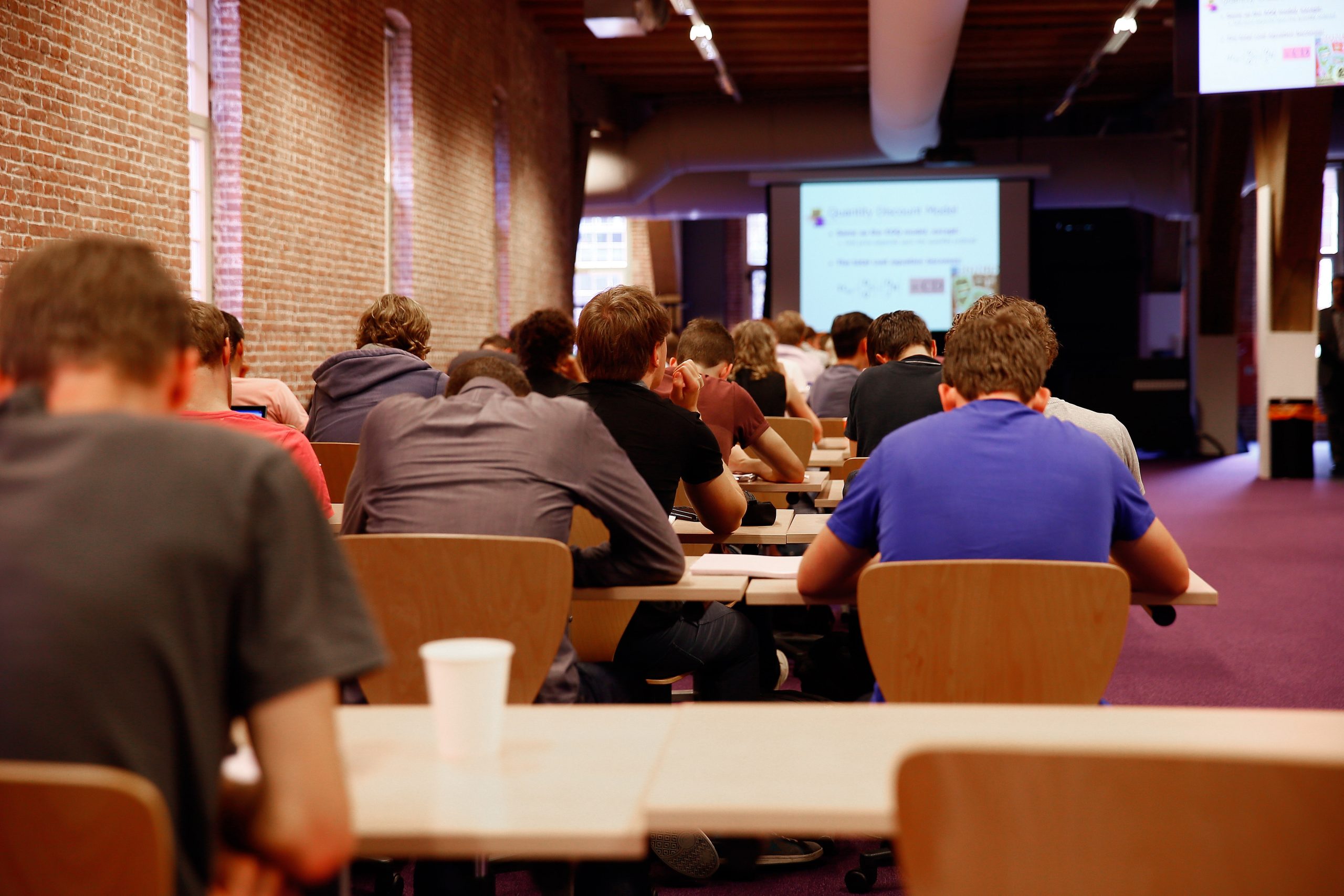Over 19,000 full-time students, PhD candidates and exchange students are currently enrolled at TU Delft. With the numbers growing at 5-10% annually, the university is confronting a lack of space on campus, especially for courses which attract more students.
“In the past ten years, the number of enrolled students in the B.Sc. and M.Sc. phase has increased continuously. All faculties have to deal with larger groups, especially in the first few weeks of each semester. Another cause [for the increase] is the new B.Sc. programmes. In the past few years most faculties have adapted their programmes to include less lectures for large groups and more active forms of education for smaller groups. This means that the demand for space is changing to more places for project work and to study by yourself,” explains Hans Poot, manager Real Estate Development, FMVG.
The Department of Facility Management and Real Estate (FMVG) and the Department of Education and Student Affairs have been working on both makeshift and long term solutions for this shortage. This year, seven classrooms with a capacity of 70 were created in 3mE and 260 new study spaces were included in the newly renovated Aula. In September, the university rented and renovated two halls in the former Leger Museum into classrooms with a capacity of over 300. Other temporary venues include the auditorium in the Aula with a capacity of 1,500, the Theatre de Veste and, the Sports Hall is on standby for examinations.
“Two and a half years ago we conducted an inventory of space, the requirements and how to manage it. Our approach is two-fold; to ensure there’s enough space quantitatively, and improve the quality of these spaces to support modern teaching methods like active learning and blended education. Last year, for some large courses we created smaller batches of students and held the same lecture twice in a day. In some faculties, a class of over 200 students can be seated in different rooms, we live stream the lecture with an interactive set-up so students in any hall can engage with the professor,” says Timo Kos, director Education and Student Affairs.
While some of the makeshift solutions are not ideal, Kos says students have thus far been understanding. Meanwhile, work is underway for long term solutions.
“We plan to build a new centre for education, creating more midsized lecture rooms to facilitate activating and multidisciplinary teaching & learning called the Learning Centre. This building will add extra teaching and study facilities to the centre of our campus, close to the Aula and the library. Together we consider this strip to be the future learning environment of the TU Delft. Furthermore, we have planned a few major renovation projects. The buildings of Civil Engineering, EWI and TNW will be renovated, including a large number of classrooms and lecture halls,” explains Poot.
While plans for the renovation of the TNW building are still being prepared, the Learning Centre is expected to be ready in 2017 and the renovated Architecture faculty by the third quarter of 2015.



Comments are closed.